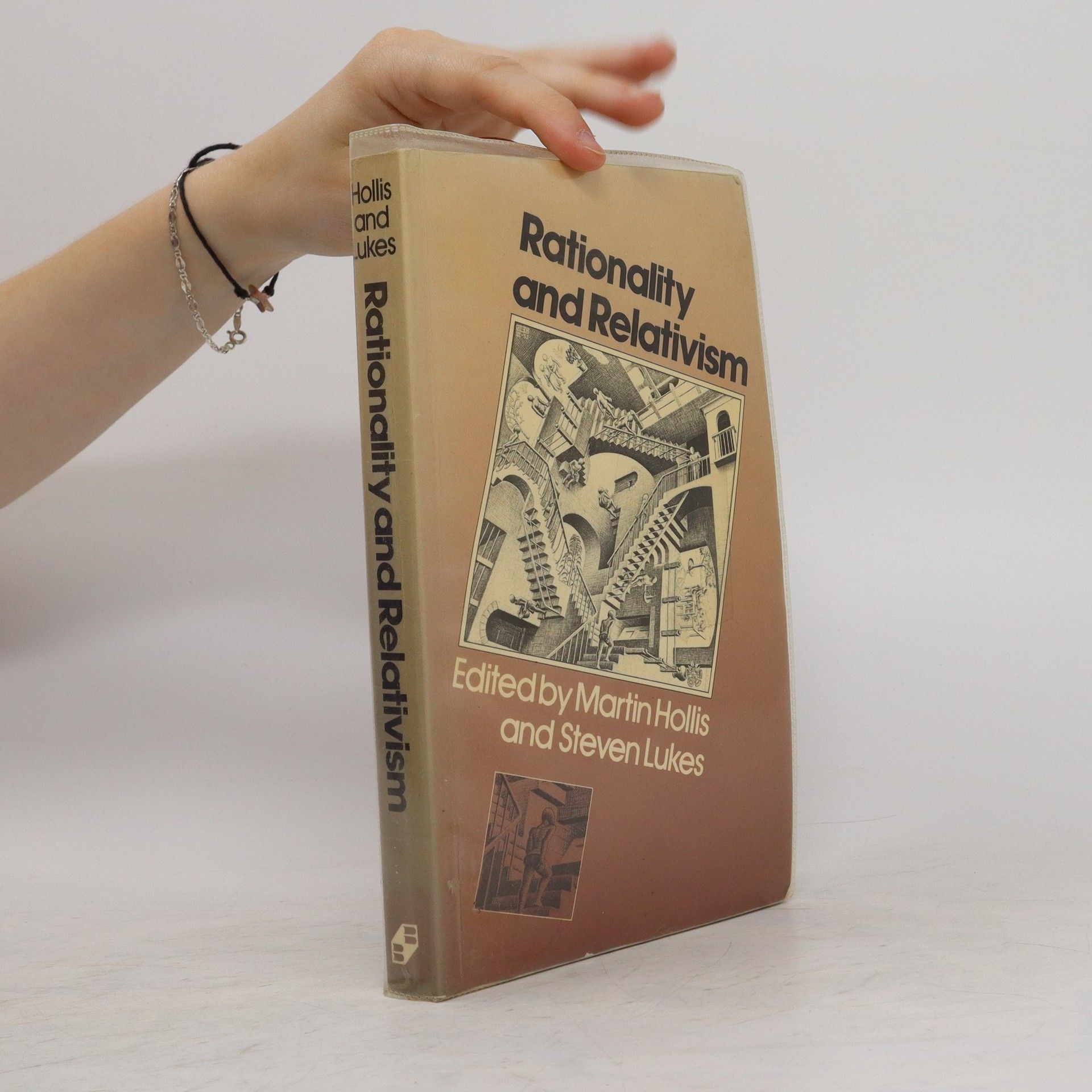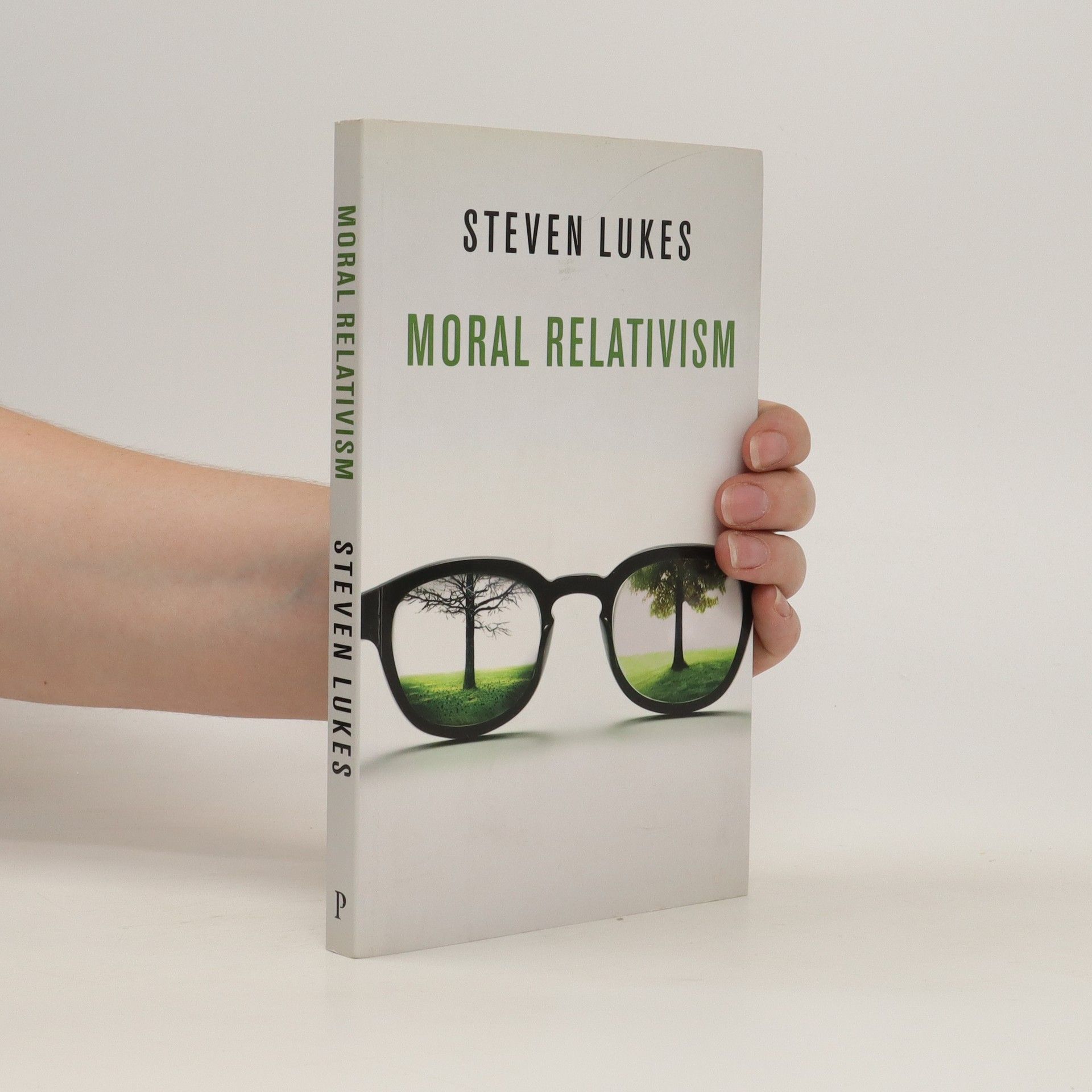Die beste aller Welten. Professor Caritats Reise durch die Utopien.
- 314 Seiten
- 11 Lesestunden
Steven Lukes ist ein angesehener politischer und sozialer Theoretiker, dessen Werk sich mit der Komplexität von Macht, Ideologie und sozialer Gerechtigkeit befasst. Seine intellektuellen Beiträge haben das zeitgenössische Denken geprägt und bieten tiefe Einblicke in die Kräfte, die Gesellschaften regieren und das Leben von Individuen beeinflussen. Lukes' akademische Laufbahn erstreckte sich über renommierte Institutionen und unterstreicht seinen bedeutenden Einfluss auf den politischen und soziologischen Diskurs.






"Versuch, in der Wahrheit zu leben" nennt der ehemalige Dissident Vaclav Havel seinen 1978 verfaßten, vielbeachteten politischen Essay, in dem seine Suche nach Wahrheit im Sozialismus zu einer modernen Gesellschaftskritik des sozialistischen Systems führt und schließlich in dem umfassenden Versuch endet, eine Krise der menschlichen Identität zu begründen. (Quelle: Amazon, Kundenrez.)
"The third edition of this seminal work includes the original text, first published in 1974, the updates and reflections from the second edition and two groundbreaking new chapters. Power: A Radical View assesses the main debates about how to conceptualize and study power, including the influential contributions of Michel Foucault. The new material includes a development of Lukes's theory of power and presents empirical cases to exemplify this. Including a refreshed introduction, this third edition brings a book that has consolidated its reputation as a classic work and a major reference point within Social and Political Theory to a whole new audience. It can be used on modules across the Social and Political Sciences dealing with the concept of power and its manifestation in the world. It is also essential reading for all undergraduate and postgraduate students interested in the history of Social and Political Thought."--Publisher's website
A whirlwind tour through the utopias of modernity The Curious Enlightenment of Professor Caritat is a brilliant fictional excursion through Western political philosophy from one of our most original thinkers. Professor Caritat, a middle-aged Candide, walks naively from his native land to the neighbouring countries of Utilitaria, Communitaria, and Libertaria on a quest to find the best of all possible worlds. Freed from the confines of his ivory tower, this wandering intellectual is made to confront the perplexed state of modern thinking in a dazzling comedy of ideas.
Everyone holds beliefs. So what gives us the right to judge the behaviour of others in a world where ethics seem increasingly diverse and conflicting? Do universal human rights exist, or do we just have to accept that there's an irreparable moral discord between us and the other?
Are there absolute truths that can be gradually approached over time through rational processes? Or are all modes and systems of thought equally valid if viewed from within their own internally consistent frames of reference? Are there universal forms of reasoning and understanding that enable us to distinguish between rational beliefs and those that are demonstrably false, or is everything relative? These central questions are addressed and debated by the distinguished contributors to this lively book. Some of them - Hollis, Lukes, Robin Horton, and Ernest Gellner - discuss new directions in their thinking since their earlier articles appeared in 1970 in the seminal volume Rationality (edited by Bryan Wilson). They are now joined in the debate by Ian Hacking, W. Newton-Smith, Charles Taylor, Jon Elster, Dan Sperber, and, in the jointly authored lead article, by Barry Barnes and David Bloor. Emerging from the debate are a variety of supportable interpretations and conclusions rather than a single, distinct "truth." The contributors represent the complete spectrum of positions between a relativism that challenges the very concept of a single world and the idea that there are ascertainable, objective universals.